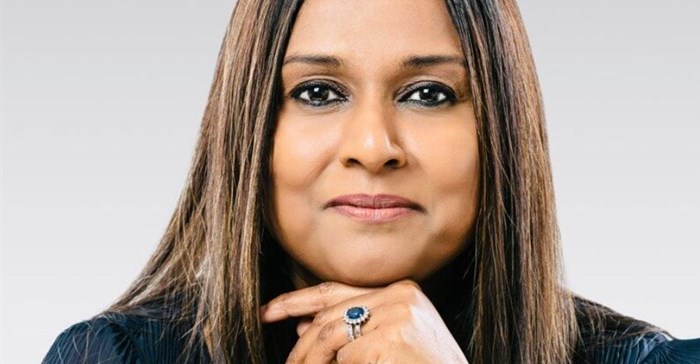
Top stories






More news





ESG & Sustainability
#Sona2026: President announces crisis committee to tackle SA's water challenges









Furthermore, estimates from the International Monetary Fund (IMF) show that only 37% of women in sub-Saharan Africa have a bank account.
Poised to change this narrative was the Standard Bank Top Women Conference 2023, which was held at the prestigious Galleria Conference and Events venue in Sandton, Johannesburg this week.
It brought together women entrepreneurs, global icons, thought leaders, and experts to offer actionable insights and practical solutions to empower and inspire attendees in their professional journeys.
“Gender inequality remains a stark reality in today's world, and yet the Standard Bank Top Women Conference 2023 has presented an opportunity to witness the immense value that female empowerment brings to our world,” said Haley Fletcher, director of Topco Media, organisers of the event.
Joining the conversation on the empowerment of women as a critical path to a brighter and more equitable future were Lineshree Moodley, Visa's country head for South Africa; Thandi Ngwane, head of investments at Standard Bank South Africa; Tatum Wheatley-Keshwar, executive director of Altvest Credit Opportunities Fund at Vodacom Business; and Delia Ndlovu, chairperson of Deloitte Africa.
In a fireside chat, they highlighted how digital transformation for women’s economic empowerment is central to realising women’s rights and gender equality.
They agreed: women’s economic empowerment includes women’s ability to participate equally in existing markets, their access to and control over productive resources and access to decent work, and digital transformation can remove barriers to access.
Said Visa's Moodley. “It can provide access to good quality education such as online training and virtual webinars where women don’t need to travel to access education; it can provide access to financial- and digital services such as mobile money and e-wallets.
"Once we can see how women are transacting: how they are spending their money, and what they are paying for - that provides access to data and that data is powerful. It can give a financial service provider a view of how to extend micro loans to micro businesses to help them grow. The World Bank states that we will see more financial inclusion for women who will be enabled by mobile money, digital wallets, and who will have access to digital platforms like e-commerce where they can start up businesses.
"To this end, being included in a digital ecosystem is not a privilege, it's a fundamental right," Moodley said.
Ngwane of Standard Bank interjected: “That's such a sobering statistic for me to think that a little over a third of women in sub-Saharan Africa have a bank account in this day and age, but it is the reality." She spotlighted South Africa's stance on financial inclusion.
According to the statistics and the number of reports, we're in a very good position.
"A report published in July this year by the Financial Sector Conduct Authority puts the statistic in South Africa of financial inclusion at 98%, so just 2% of South African adults do not have access to a financial product or service,” she said.
However, access alone is not the barrier to access, she warned.
“One of the ways that we can improve access to financial services is to think about how we solve for women’s needs across the value chain and to understand that access to financial services doesn't start with whether a woman wants to open a bank- or an investment account, it starts at product development.
"So when financial service providers are formulating their solutions are they tailoring that financial service to suit a woman's needs and are they cognisant of whether she is a housewife, an entrepreneur, or a corporate?"
"But, women's economic empowerment extends further," noted Ndlovu of Deloitte Africa, emphasising that women hold only about a quarter of leadership roles in global financial services firms. Contemplating gender parity in South Africa and necessary improvements, Ndlovu highlighted that women's board representation stands at around 29%, a figure largely consistent with global trends.
She challenged the 30% club campaign, a group of business chairpersons and chief executive officers taking action to increase gender diversity on boards and senior management teams. It was established in the United Kingdom in 2010 by Helena Morrissey with the aim of achieving a minimum of 30% female representation on the boards of FTSE 100 companies.
"I believe aiming for a 30% target is insufficient," Ndlovu said.
She challenged businesses to set higher goals for equitable female representation, showing that with women leading, the entire leadership dynamic of an organisation transforms.
"As an illustration, during my tenure as chair of Deloitte Africa, we increased board representation from 38% to 60%. Our CEO achieved a move from 30% to 42%, and our global chair elevated a 16% representation to 40%. This pattern is consistent, as seen in the US, where the figure rose to 50%, all because women assumed leadership roles."
While Ndlovu emphasised the transformative impact of women in leadership roles, she cautioned that mere representation in a firm is insufficient.
"Leaders should be both demographically and cognitively diverse, and those already in leadership need to be intentional and committed to this mandate," she noted.
“It shows courage to support women with mentorship and sponsorship, to support their dreams and bold visions."